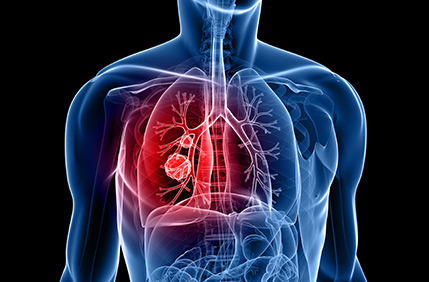 This CE activity was originally published in The Rx Consultant. If you received credit for it previously, you cannot receive credit for it again.
This CE activity was originally published in The Rx Consultant. If you received credit for it previously, you cannot receive credit for it again.Lung cancer claims the lives of more people than any other cancer worldwide. In the US, lung cancer is the third most commonly diagnosed cancer. In 2018, there were approximately 234,030 new cases diagnosed and over 154,000 lung cancer related deaths. Lung cancers are histologically (microscopic tissue structure) defined as small cell lung cancer (SCLC) and non-small cell lung cancer (NSCLC), accounting for 15% and 85% of cases, respectively. Adenocarcinoma is the most common subtype of NSCLC. Because early lung cancer is largely asymptomatic, more than half of the cases have metastasized at the time of diagnosis.
The treatment landscape for metastatic lung cancer has changed significantly with the development of targeted oral therapies and immune checkpoint inhibitor (ICPI) therapy. Unlike chemotherapy, targeted oral therapy blocks the growth and spread of cancer cells; not all cells. ICPIs help the immune system distinguish between cancer and normal cells, allowing the immune system to attack the cancer cells. Like most new oncology treatments, ICPIs were initially approved for use later in the sequence of treatment options – but are now standard of care, first-line treatments for some patients. This article will not review ICPIs, but instead focus on the targeted oral therapies available for the treatment of metastatic NSCLC. More patients are receiving longterm, targeted oral therapies due to extended progression-free survival with these medications compared to chemotherapy...
Fee
CE Hours
CE Units
Activity Type
- Knowledge
Target Audience(s)
- Pharmacists, Nurse Practitioners, Clinical Nurse Specialists, and Registered Nurses
Accreditation(s)
CE activities for Pharmacists and Pharmacy Technicians:
This continuing education (CE) activity meets the requirements of all state boards of pharmacy for approved continuing education hours. CE credit is automatically reported to CPE Monitor.
The American Nurses Credentialing Center (ANCC) for formally approved continuing education (CE) hours, and CE hours of pharmacotherapeutics.
The American Academy of Nurse Practitioners Certification Program (AANPCP) for acceptable, accredited CE.
- The ANCC requires all advanced practice nursing certificants (CNSs and NPs) to complete 25 CE hours of pharmacotherapeutics as a portion of the required 75 continuing education hours.
- Pharmacology CE is recommended by the AANPCP and will be required for Certificants renewing certification starting January 2017.
- Most State Boards of Nursing require a minimum number of pharmacy contact hours to renew an advanced practice license.

Requirements for CE Credit
Objectives
- Describe the risk factors for lung cancer and how it is diagnosed.
- Discuss the overall treatment goal and general plan for managing non-small cell lung cancer (NSCLC).
- Discuss the currently recommended targeted treatment approaches and regimens for NSCLC.
- Counsel patients about the major adverse effects and drug interactions with oral targeted treatments for NSCLC; recommend management options.
Speaker(s)/Author(s)
|
Shannon M. Hough, PharmD, BCOP
Brief Bio : Shannon M. Hough, PharmD, BCOP is the Pharmacy Manager of Oncology Clinical Services at Michigan Medicine and an adjunct Clinical Assistant Professor at the University of Michigan College of Pharmacy in Ann Arbor, MI. She is also a thoracic oncology clinical pharmacist specialist at the University of Michigan Rogel Cancer Center in Ann Arbor. Disclosure : Dr. Hough reports no financial relationship with the manufacturer(s) or provider(s) of any commercial product(s) or service(s) that appear in this issue. |
Activity Number
0428-0000-19-001-H01-P
